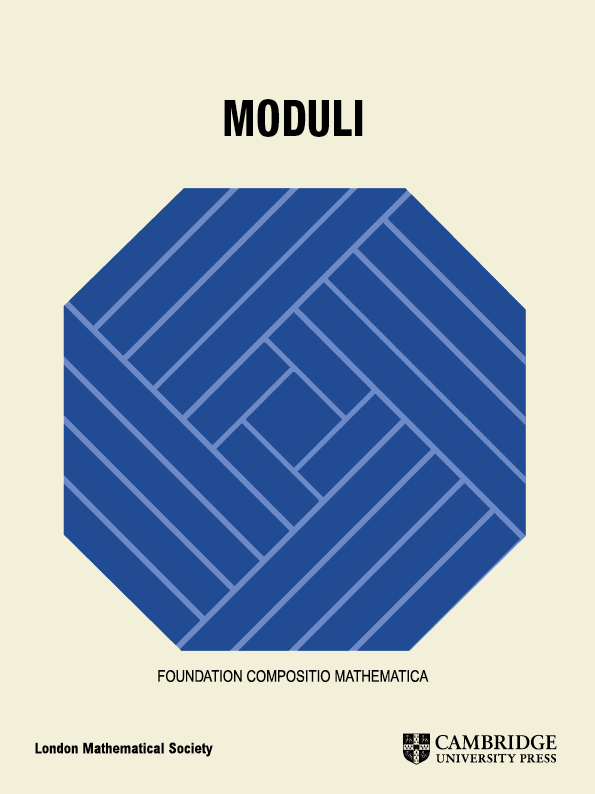The Managing Editors of Moduli introduce the new journal in a lucid Editorial and explain its fascinating origins.
As the Managing Editors, we are pleased to introduce you to Moduli, a new open access mathematics journal owned by the Foundation Compositio Mathematica and published in collaboration with the LMS and Cambridge University Press.

Our goal with Moduli is to create a common forum, to bring researchers from different corners of mathematics together and build a community around the common theme of moduli theory. The journal will facilitate communications across disciplines in a way which subject specific journals might miss. To promote this community-building, the managing editors of Moduli also plan to organize a series of events loosely affiliated with the journal. The first such event will be the three-week Summer Workshop in Mathematics taking place on 1–19 July 2024 at the Simons Center for Geometry and Physics (Stony Brook, NY), which will be dedicated to Moduli.
The question “There really is no journal dedicated to moduli theory – why don't we create one?” was posed by one of us (Jørgen) to the steering committee for the Vector Bundles on Algebraic Curves (VBAC) group as we were discussing how to cope with retirement of the group's founder and long-time leader, Peter Newstead. Created in the early 1990s, this group has met for an annual workshop every year with just one small gap in 1995/1996 and one COVID hiatus in 2021. These annual gatherings anchored and inspired more than one generation of researchers in a broad range of topics. After guiding the group for over thirty years, Peter retired from his active leadership in 2021. While we discussed Peter’s legacy, and life in VBAC without him at the helm, we reflected on how valuable it has been to have a community built around this corner of moduli theory. That is when we realized the potential for an even wider, interdisciplinary community, united around moduli theory more broadly.
Four members of the VBAC steering committee were joined by three other researchers in moduli theory to form the founding managing editorial board. We pitched the idea to the Foundation Compositio Mathematica, and Moduli was born. The new journal welcomes original research contributions of the highest quality on all aspects of moduli, and emphasizes clarity of exposition to enable all papers to bridge as many boundaries as possible within the target audience.
We encourage you and the entire mathematical community to participate in this exciting new venture by submitting high-quality papers in the broad area of moduli spaces and their theory to Moduli. We look forward to your submissions (see our website at https://moduli.nl/ for more information).
Best wishes,
Jørgen Ellegaard Andersen, Steve Bradlow, Dan Halpern-Leistner, Vicky Hoskins, Frances Kirwan, Margarida Melo, and Anna Wienhard
